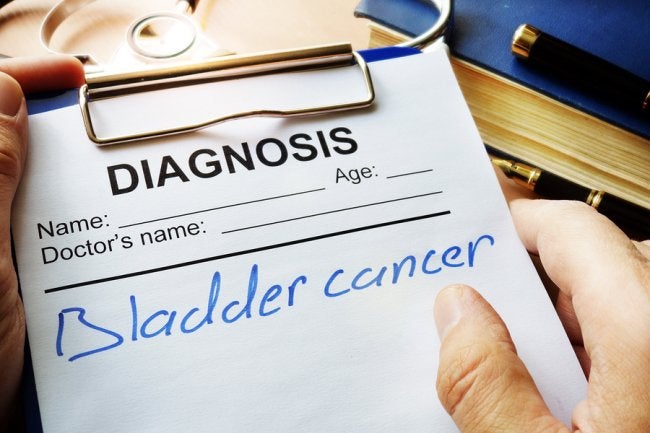Cystectomies: What to Know and What to Do

Bladder cancer is one of the less common types of cancer diagnosed in the U.S. It usually affects older adults, and it’s typically diagnosed in its earlier stages. Although cancer treatment is more effective when administered as early as possible, this particular disease does have a higher risk of recurrence than most cancers. If the cancer comes back after an initial treatment, or if it isn’t diagnosed until it’s started to spread, then the urologist may recommend a cystectomy.
About the Surgery
The doctor may perform a partial cystectomy, which removes only part of the bladder , or a radical cystectomy, which removes the entire bladder. In men, this latter option also involves the removal of the prostate and seminal vesicles. In women, the removal of the uterus, cervix, ovaries, fallopian tubes, and some of the vaginal may also need to be removed. If you’ll be undergoing a radical cystectomy, your doctor will explain your options for reconstructive surgery. It will be necessary to have an alternative way of storing urine. There are three options:
- Incontinent diversion: A stoma bag, located outside the body, collects urine for manual emptying.
- Continent diversion: No bag is located on the outside of the body. Urine is drained by inserting a catheter into the new valve on the front of the abdomen.
- Neobladder: The newest method of diverting urine, this involves recreating a new bladder from intestine. Patients may still suffer incontinence, but they can urinate normally.
Steps to Prepare
You’ll be given specific instructions to prepare for the cystectomy, based on your unique health factors. You may be asked to:
- Quit smoking
- Avoid alcohol
- Limit or avoid caffeine
- Make changes to your prescribed and over-the-counter medications
You’ll be placed under general anesthesia for this surgery. To ensure your safety, you’ll need to avoid liquids and food after a certain point—usually midnight the night before the surgery. You should also make arrangements for your recovery. A cystectomy is major surgery, and you can expect to be in the hospital for about five to six days.
At Urology Associates, P.C., you’ll find compassionate care and cutting-edge cancer treatments right here in Tennessee. Our urology team emphasizes the importance of patient education, so you’ll know exactly what to expect and how to prepare for your treatment. Contact our office at (855) 901-1338.
Recent Posts
categories
- Uncategorized
- Bladder Cancer
- Women's Sexual Health
- MonaLisa Touch
- Urology
- Urologist
- Erectile Dysfunction
- Kidney Cancer
- Incontinence
- Prostate
- MonaLisa Touch Laser Treatment
- Kidney Stones
- Urinary Tract Infections
- Event
- Sexual Dysfunction
- Testicular Cancer
- Prostate Cancer
- Urology Surgery Center
- urinary incontinence
- vaginismus
- noncoital pain disorder
- Hypoactive Sexual Desire Disorder
- Infographic
- provenge
- Xofigo
- robotic surgery
- hormone replacement
- diabetes
- renal cell carcinoma
- pelvic pain
- hematuria
- sexual health
- chronic testicular pain
- premature ejaculation
- Men's Health Clinic
- Dr. Melvin Seard
- Interstitial Cystitis
- vasectomy
- overactive bladder
- vaginal atrophy
- nocturia
- bladder infections
- urethral strictures
- Acute Epididymitis
- low sex drive
- circumcision
- pelvic floor dysfunction
- Peyronie's Disease
- prostatitis
- female sexual dysfunction
- varicocele
- difficult urination
- low libido
- PSA levels
- male fertility
- penile prosthesis
- prostatic intraepithelial neoplasia
- male infertility
- estrogen levels
- nurse navigator
- stress urinary incontinence
- vaginal yeast infection
- elevated psa
- painful sex
- adult circumcision
- epididymitis
- OAB
- kidney infection
- penile cancer
- pelvic organ prolapse
- Vasectomy Reversal
- bone health
- cystectomies
- clinical trials
- bloody urine
- Advanced Therapeutic Center
- WISH MedSpa
- neurogenic bladder
- WISH Team
- prostate biopsies
- BPH
- fecal incontinence
- lithotripsy
- osteoporosis
- kidney cysts
